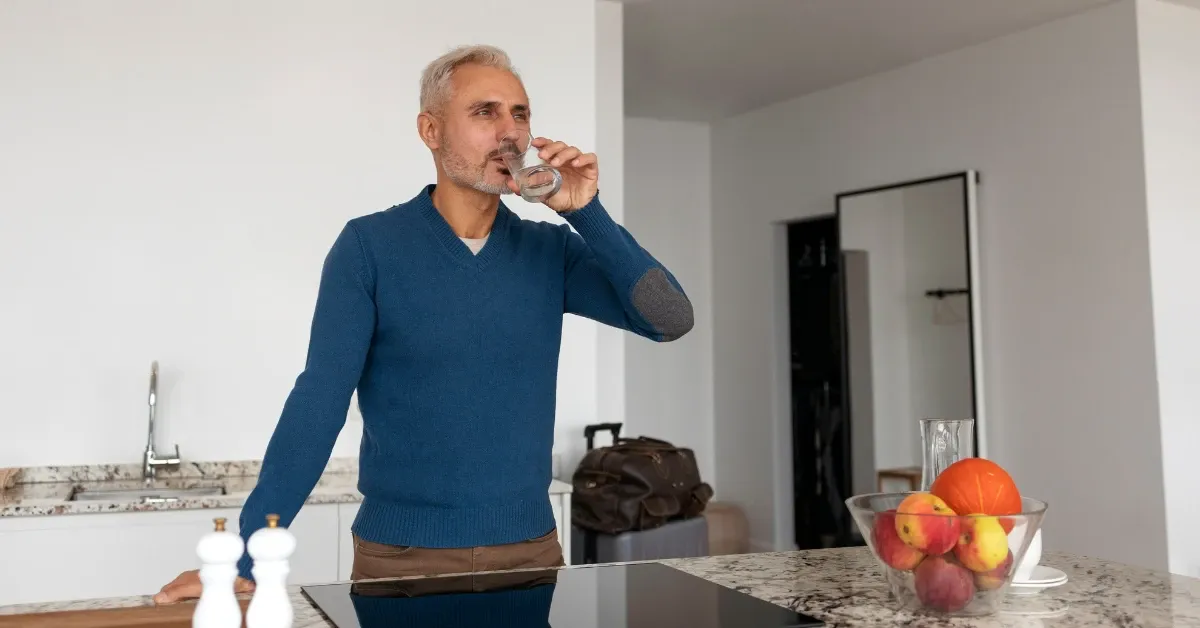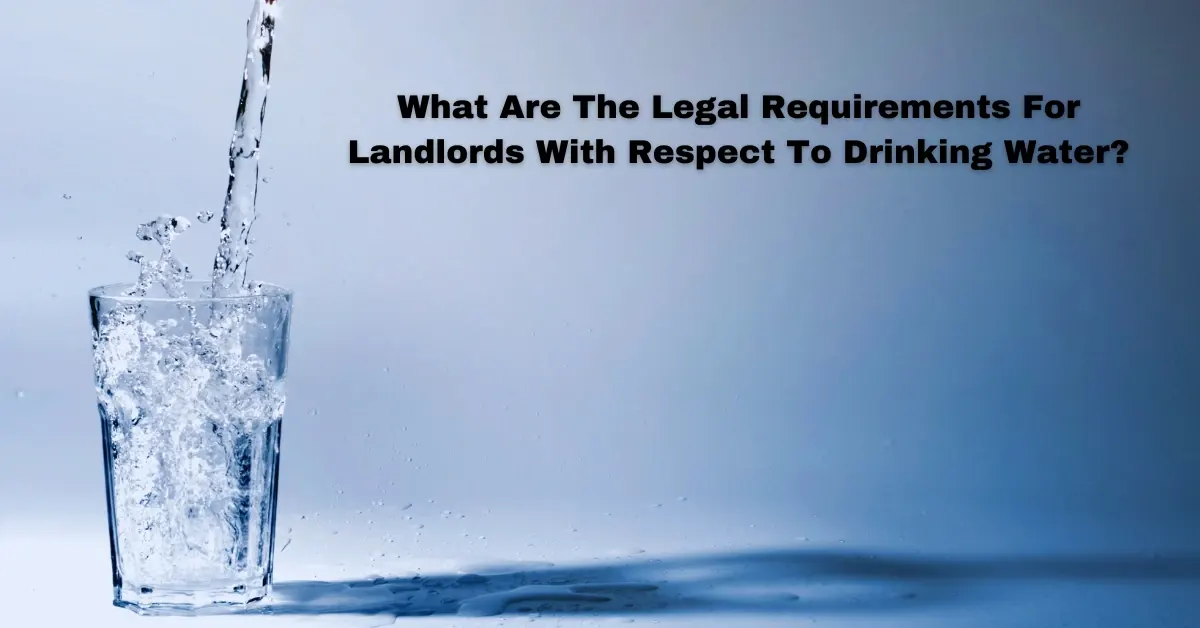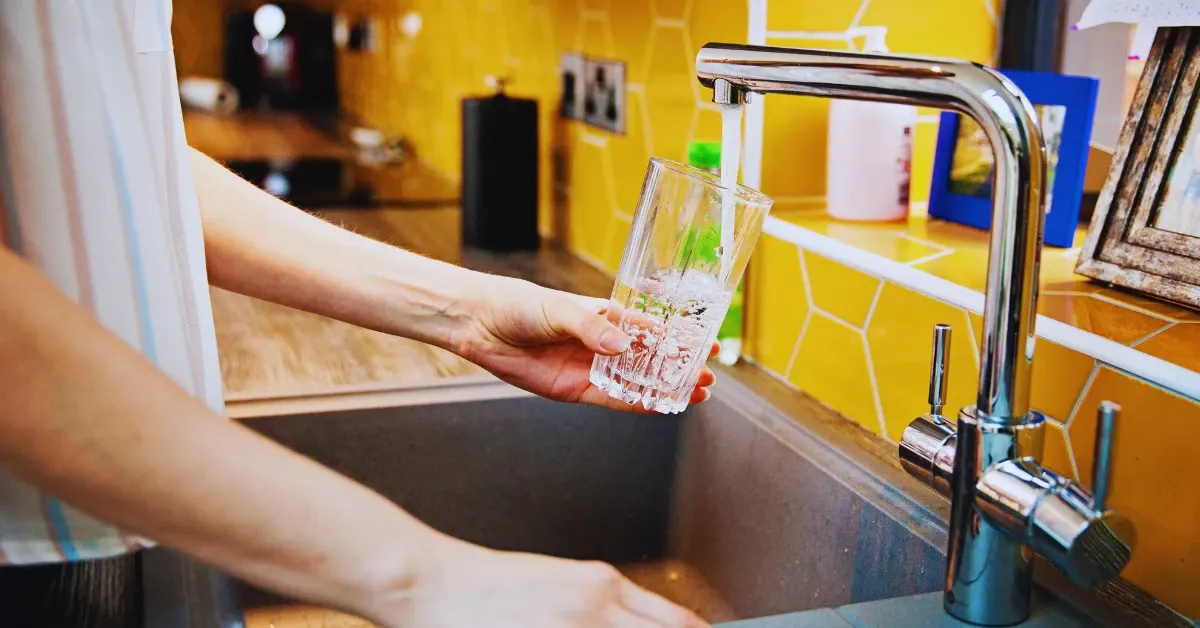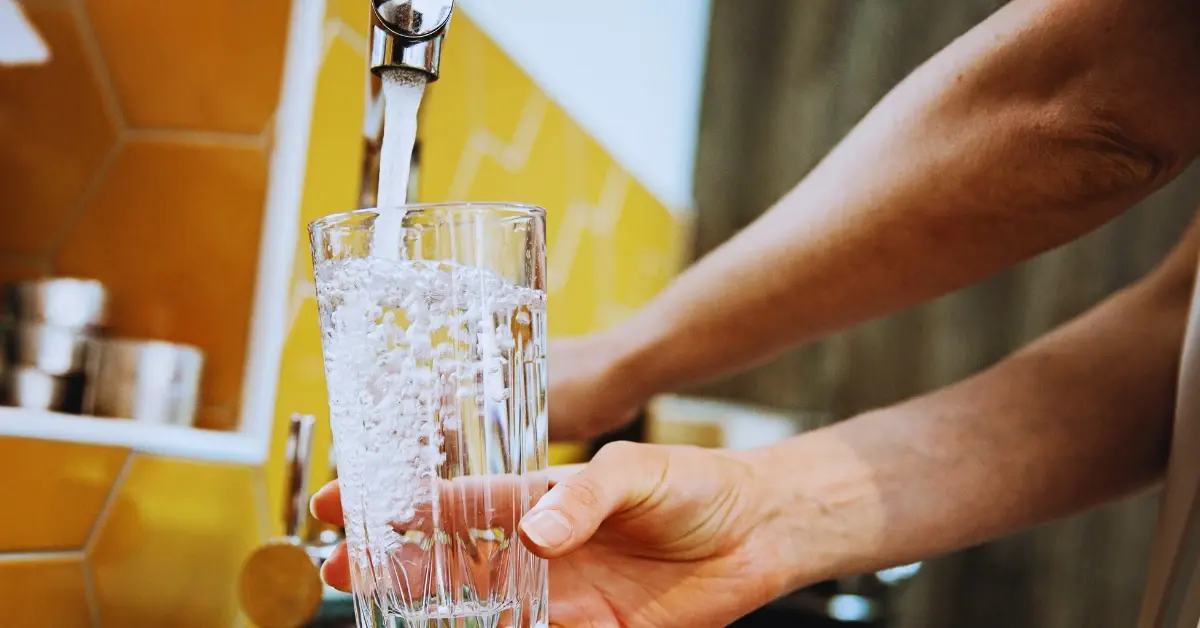Ensure Safety: Do Landlords Have to Provide Drinking Water?
Yes, landlords are required by law to provide drinking water to their tenants. This is considered a basic necessity that is essential for a healthy and safe living environment.
Failure to provide clean drinking water can result in legal consequences for landlords. Ensuring tenants have access to safe and clean drinking water is an essential responsibility of landlords.
The provision of water is particularly critical in multi-unit buildings, where numerous inhabitants rely on the landlord to supply safe and adequate drinking water.
The EPA (environmental protection agency) has established regulations that govern the quality and sanitation of water to be supplied to tenants. The safe drinking water act specifies that the landlord must maintain the plumbing systems and provide uncontaminated water.

What Are The Legal Requirements For Landlords With Respect To Drinking Water?

Landlords’ Obligations Under Tenancy Laws
As a landlord, it’s your responsibility to ensure your tenants have access to clean drinking water.
You must provide drinking water as part of your rented property, and it should be easily accessible to all tenants at all times.
It’s essential to keep the water source clean and ensure it’s free from contamination.
As a landlord, you must also know the state and municipal laws to ensure you comply with all the set regulations.
Here are the landlord’s obligations under tenancy laws:
- Provide clean drinking water to tenants as part of the rented property.
- Ensure the water source is clean and free from contamination.
- Comply with state and municipal regulations on rental properties.
Municipal Regulations On Tenant Rights To Drinking Water
Each municipality has regulations regarding tenant rights to drinking water.
In most states, landlords cannot charge for water consumption if the water is sourced from a private well or other sources.
More so, landlords must provide a separate meter for each rental unit, and the tenant must only pay for their own usage.
Here are the municipal regulations on a tenant’s right to drinking water:
- Landlords cannot charge for tenants’ consumption of water.
- Landlords must provide a separate meter for each rental unit.
- Tenants must only pay for their own water usage.
Health And Safety Codes For Rental Properties
Besides tenancy laws, landlords must adhere to health and safety codes for rental properties.
Suppose you violate any code regarding drinking water requirements within rental properties.
In that case, you could face charges and penalties for renting out substandard property. Here are the health and safety codes for rental properties:
- Provide potable drinking water to tenants.
- Ensure the water source is clean and free from contamination.
- Maintain water supply, including hot water and sewage.
- Adhere to potential health and safety codes by local state regulatory agencies.
As a landlord, you must be up-to-date with all the requirements and regulations regarding drinking water in rental properties.
By complying with all the regulations, you guarantee your tenant’s health and don’t face any legal action.
Challenges In Providing Safe Drinking Water In Rental Units
Rental properties bring their own set of unique challenges in ensuring safe and clean drinking water for tenants.

Landlords bear the responsibility of providing a habitable, safe living environment for their tenants, which includes access to clean drinking water.
However, several challenges arise when it comes to providing safe drinking water to rental unit tenants.
Ageing Infrastructure And Plumbing Systems In Old Buildings
One of the biggest challenges in providing safe drinking water to tenants in rental units is dealing with aged infrastructure and plumbing systems in old buildings.
These older buildings may have outdated plumbing material, which can lead to issues such as rust, corrosion, and leaks.
Lead pipes, which were once a popular plumbing material, can cause lead contamination in tap water.
To address these issues, landlords should consider updating their plumbing systems by replacing outdated pipes with new ones that meet the latest safety and sanitary standards.
Regular plumbing inspections and maintenance can also help detect and prevent potential issues. Examples of challenges:
- Outdated plumbing material can cause leaks, rust, and corrosion, leading to unsafe drinking water.
- Lead pipes, which were once common, can lead to lead contamination in tap water.
- Repairing and replacing outdated plumbing materials can be costly and time-consuming.
Water Quality And Contamination Issues
Another challenge that landlords face in providing safe drinking water to tenants is dealing with water quality and contamination issues.
Water can contain various contaminants such as bacteria, viruses, heavy metals, and chemicals.
Contaminated water can cause a range of health issues, such as gastrointestinal problems, skin irritation, and respiratory issues.
To ensure the safety of tenants, landlords should conduct regular water quality tests and address any contamination issues promptly.
Installation of proper water filtration systems can help remove harmful contaminants and improve water quality. Examples of challenges:
- Water can contain various contaminants such as bacteria, viruses, heavy metals, and chemicals.
- Contaminated water can cause health issues, such as gastrointestinal problems, skin irritation, and respiratory issues.
- Regular water quality testing and installation of filtration systems can help ensure safe and clean drinking water for tenants.
Tenant Misuse Or Neglect Of Drinking Water Facilities
Another challenge that landlords face in providing safe drinking water to tenants is tenant misuse or neglect of drinking water facilities.
Tenants may accidentally or intentionally contaminate the water by pouring chemicals down the drain or leaving food particles in sink strainers.
Some tenants may also neglect to report leaks or water quality issues, which can lead to further contamination.
To address this issue, landlords should educate their tenants on proper water usage and maintenance.
Clear guidelines and rules regarding water usage can also help prevent contamination issues. Examples of challenges:
- Tenants may accidentally or intentionally contaminate the water by pouring chemicals or leaving food particles in sink strainers.
- Neglecting to report leaks or water quality issues can lead to further contamination.
- Educating tenants on proper water usage and maintenance can help prevent contamination issues. Clear guidelines and rules regarding water usage can also help.
Addressing Drinking Water Concerns In Rental Properties

Do Landlords Have To Provide Drinking Water
As a landlord, providing adequate drinking water to your tenants is a responsibility that cannot be overlooked.
Water is a basic human need, and as a landlord, it is vital to ensure that your tenants have access to safe and clean drinking water.
Ensuring Adequate Water Supply And Continuity
It is essential to ensure that there is a constant and reliable supply of water to your rental properties.
Adequate water supply and continuity are essential for the comfort and safety of your tenants. Here are some key points to consider:
- Check and service water storage facilities and tanks regularly.
- Ensure proper plumbing maintenance, including repairs of leaks and blockages.
- Have a backup plan in case of water shortages.
Remediating Water Quality And Sanitation Problems
Ensuring that your rental property’s drinking water is safe and clean is crucial. Water quality and sanitation problems can lead to severe health issues for tenants.
Here are some necessary steps to take:
- Regularly test the water quality to ensure that it meets the required local and national guidelines.
- Address any water quality issues immediately, including implementing corrective action plans.
- Ensure proper sanitation and disinfection of the water storage facilities before refilling.
Educating Tenants About Drinking Water Safety And Hygiene
While you are responsible for providing safe and clean drinking water, educating tenants about drinking water safety and hygiene is crucial.
This awareness will go a long way in preventing waterborne illnesses. Here are some essential tips:
- Educate tenants about the safest sources of drinking water and discourage drinking water from any unsafe sources.
- Provide tenants with guidelines on correct water handling and storage practices, including cleaning and sanitizing water storage containers and avoiding cross-contamination.
- Educate tenants on detecting water quality issues and reporting them immediately.
Verifying Compliance With Local And National Guidelines
As a landlord, it is essential to comply with both local and national guidelines on drinking water quality and access. Here are some tips on ensuring compliance:
- Familiarize yourself with the local and national guidelines and ensure that you are adhering to them.
- Keep records of water quality test results and maintenance activities to track compliance.
- Work with a certified water quality expert to ensure that your rental property meets the required regulations.
Ensuring safe and adequate drinking water access in rental properties is essential. As a landlord, it is your responsibility to provide clean and safe drinking water to your tenants.
By ensuring adequate water supply and continuity, remediating water quality and sanitation problems, educating tenants about drinking water safety and hygiene, and verifying compliance with local and national guidelines, you can ensure a safe, comfortable living space for your tenants.
Frequently Asked Questions For Do Landlords Have To Provide Drinking Water
Do Landlords Have To Provide Drinking Water To Tenants?
Yes, landlords are legally obligated to provide a reliable supply of clean drinking water to tenants.
Can Landlords Charge Tenants For Drinking Water?
No, landlords cannot charge tenants for drinking water as it is considered a basic necessity for living.
What Should A Tenant Do If Their Landlord Isn’t Providing Drinking Water?
Tenants should immediately report the situation to their landlord in writing and follow up regularly until the issue is resolved.
Is It Possible For Tenants To Report Their Landlord For Not Providing Drinking Water To Authorities?
Yes, tenants can file a complaint with the local housing authority or health department if their landlord fails to provide drinking water.
Conclusion
After going through the regulations and laws, it is clear that landlords are responsible for providing tenants with safe and potable drinking water.
It is their legal obligation to ensure that the water is fit for consumption and meets the standards set by the local or state authorities.
Tenants also have the right to request water quality reports and should contact their landlord if any issues arise regarding the water quality.
As a landlord, it is essential to take proactive steps to ensure that the water supply is regularly inspected, maintained, and tested to avoid any health or legal issues later on.
Providing clean drinking water not only fulfils a legal obligation but also fosters a healthy tenant-landlord relationship and guarantees a safe living environment for your tenants.
So, as a landlord, take the necessary steps to ensure that your tenants have access to clean and safe drinking water at all times.